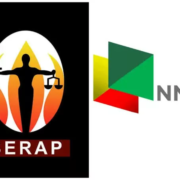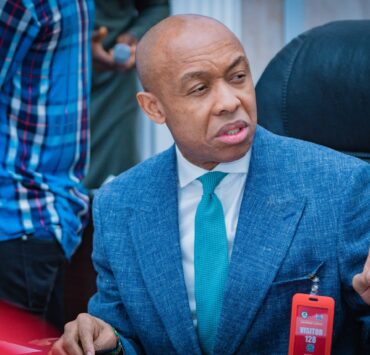SERAP Threatens Legal Action Against Governors Over FAAC Spendings

Lawyard is a legal media and services platform that provides…
Socio-Economic Rights and Accountability Project (SERAP) has threatened to sue Nigeria’s 36 state governors if they fail to account for the trillions of FAAC allocations received by their state and the FCT since 1999.
The accountability organisation also asked the Federal Capital Territory (FCT) minister to provide them with a document of the FAAC allocations spending and to publish any such documents widely.
SERAP also urged them “to invite Independent Corrupt Practices and Other Related Offences Commission (ICPC) and Economic and Financial Crimes Commission (EFCC) to jointly track and monitor the spending of FAAC allocations by your state and the FCT and to probe any allegations of corruption linked the allocations.”
The organisation, in a statement on Sunday, April 21, emphasized that without this information, Nigerians cannot monitor the actions of their states and the FCT in Freedom of Information (FOI) requests dated April 20, 2024, and signed by SERAP Deputy Director Kolawole Oluwadare.
SERAP requests followed reports that the Federation Account Allocation Committee (FAAC) disbursed N1.123 trillion to the federal, state, and local governments for March 2024 alone.
According to SERAP, the alleged mismanagement of trillions of FAAC allocations received by Nigeria’s 36 states and the FCT poses a direct threat to the human rights of socially and economically vulnerable Nigerians, with significant human costs incurred as a consequence.
The statement quoted the FoI requests to read in part: “Secrecy in the spending of FAAC allocations received by your state and the FCT is entirely inconsistent and incompatible with the Nigerian Constitution 1999 [as amended] and the country’s international anti-corruption obligations.”
“Secrecy in the spending of FAAC allocations received by your state and the FCT also denies Nigerians the right to know how public funds are spent. Transparency in the spending would allow them to retain control over their government.”
“The documents should include the evidence and list of specific projects completed with the FAAC allocations collected, the locations of any such projects, and completion reports of the projects. The documents should also include details of the salaries and pensions paid from the FAAC allocations collected, as well as the details of projects executed on hospitals and schools with the FAAC allocations.”
It also noted that despite the increased FAAC allocations to states and the FCT, millions of residents in the states and the FCT continue to face extreme poverty and lack access to basic public goods and services. The removal of the petrol subsidy and the floating of the exchange rate by the Federal Government has translated into increased FAAC allocations to states and the FCT.
SERAP also stated that FAAC allocations received by each state and the FCT are reportedly characterised by mismanagement, diversion of funds, and abandoned projects. Additionally, FAAC allocations have allegedly been spent on other purposes, such as election campaigns and political patronage.
“We would be grateful if the recommended measures are taken within 7 days of the receipt and/or publication of this letter. If we have not heard from you by then, SERAP shall consider appropriate legal actions to compel you your state, and the FCT to comply with our requests in the public interest.
“According to our information, the Federation Account Allocation Committee (FAAC) last week disbursed N1.123 trillion to the federal, state, and local governments for March 2024. State governments got N398.689 billion while local government councils got N288.688 billion. The mineral-producing states received an additional N90.124 billion (13% of mineral revenue). In February, states collected N336 billion,” the request added.
Lawyard is a legal media and services platform that provides enlightenment and access to legal services to members of the public (individuals and businesses) while also availing lawyers of needed information on new trends and resources in various areas of practice.













